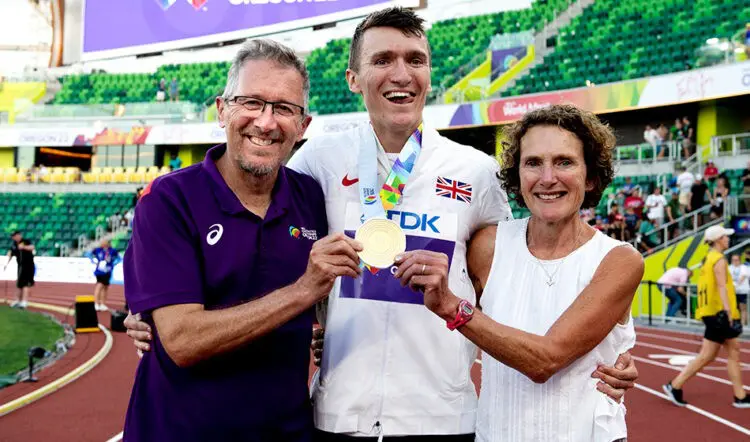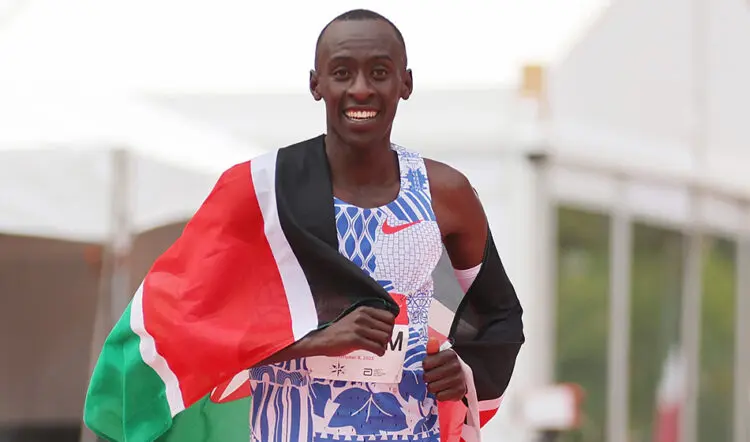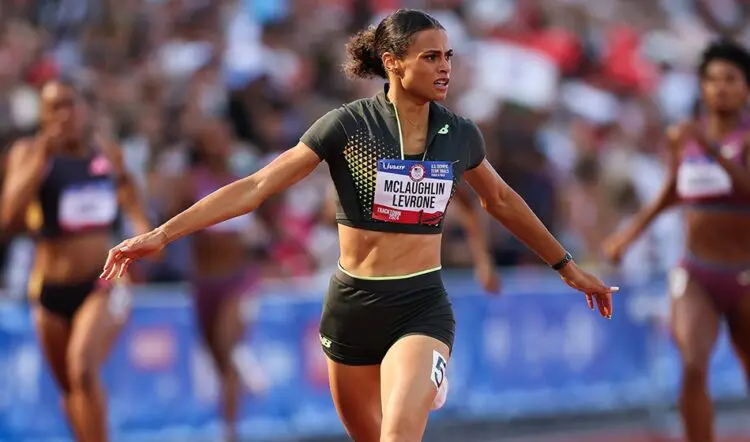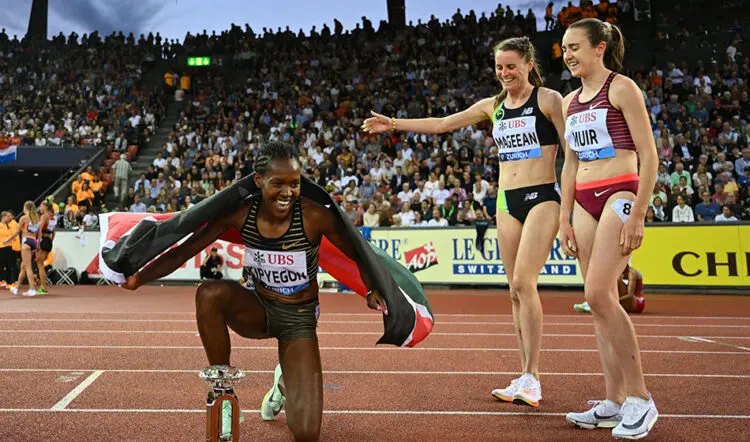Our series to mark the 80th anniversary of AW continues with the most recent years
Warholm’s run of wonder
Karsten Warholm’s world-record breaking feat in winning Olympic 400m hurdles gold at the Covid-delayed Games four years ago will go down as one of the finest performances in athletics history.
The event had been shaping up to be the race of the Games and there were even some people who were slightly disappointed when the Norwegian smashed Kevin Young's long-standing world record with his run of 46.70 in Oslo one month previously, given that it was potentially going to take something away from the Olympic final. Yet they need not have worried.
Rai Benjamin obliterated the record with 46.17 but the American was still two metres adrift of Warholm's space-age 45.94. The world record had fallen by 0.45 of a second in 41 years and it had dropped 0.76 in a single race. Alison dos Santos of Brazil was a distant third but still ran 46.72.
Warholm, who screamed and ripped his speed suit in celebration, said: "I put my whole soul into it.”

Wightmans’ family affair
Having finished 10th in the 2021 Olympic 1500m final in Tokyo, Jake Wightman knew he had work to do if he was going to be a contender at the 2022 World Championships in Eugene.
Once again, he would be up against a field including the likes of Olympic champion Jakob Ingebrigtsen, plus fellow Scot and Olympic bronze medallist Josh Kerr.
The Norwegian was the clear favourite but Wightman and his father Geoff, also then his coach, believed that they had found a route to victory. If they could make sure that Jake was within striking distance with 200m to go, utilising his 800m finishing kick could make all the difference.
Just as planned, Jake sat right on Ingebrigtsen’s shoulder as the field entered the final bend at Hayward Field. The Briton saw his chance and went for it.
There was shock on his face as he won in 3:29.23 to edge out Ingebrigtsen (3:29.47) and become the first British 1500m world champion since Steve Cram in 1983.
The moment was made all the more unique by the fact that, up in the stands, Geoff was commentating on the race as the stadium announcer.
Addressing the crowd, he said: “If you are wondering why I have suddenly appeared on the big screen, it’s because the winner of that last race is my son, and I coach him, and he’s the new world champion.”

Felix bows out
Allyson Felix brought the curtain down on the most decorated career in track and field history in 2022, signing off with World Championships gold in the women’s 4x400m relay and bronze in the Mixed 4x400m relay in Eugene. Those were her 19th and 20th world medals –14 of them gold, three silver, and three bronze – across the 200m, 400m and sprint relays. She was just 19 when she won her first world title in 2005. The 4x400m title in Tokyo, where she also won individual 400m bronze, made her a seven-time Olympic champion, with 11 medals in total.
Felix ran the final races of her career in spikes made by the brand she had launched – Saysh – in 2021, following her well-publicised dispute fallout with long-term sponsors Nike.
It was in 2019 that she took on the sportswear giant over maternity pay, revealing Nike's threat to cut her pay by 70 per cent if motherhood affected her future athletic performance. Three months later, Nike changed its stance and new contracts guaranteed an athlete's pay and bonuses for 18 months around pregnancy. Three other brands followed suit.
Felix has continued her advocacy for women, particularly in the realm of maternal health rights, in retirement.

Kiptum’s quantum leap
Given that Eliud Kipchoge had lowered the world record to 2:01:09 in 2022, many had expected the marathon master to be the one to get within reach of the two-hour barrier in an official race. However, it was another Kenyan who put himself in prime position to realise that ambition.
Kelvin Kiptum had been an emphatic winner of the 2023 London Marathon with a breathtaking second half and a course record of 2:01:25. In Chicago later that year, he went up another level to destroy Kipchoge’s mark with a run 2:00:35 that suggested it was only a matter of time until he made even more history. His untimely death last year at the age of 24 means the world will never know how fast he could ultimately have gone.

McLaughlin-Levrone dominates
Just as Karsten Warholm did in the men’s event, Sydney McLaughlin-Levrone changed the face of the women’s 400m hurdles at the Tokyo Olympics with world record-breaking exploits. The American, however, has lowered her mark seemingly almost at will since.
Her most dominant display came at last year’s Paris Games, where she successfully defended her title and broke the world record for the sixth time, taking 0.28 off it with 50.37.
World champion Femke Bol had lowered her European record 50.95 earlier that summer but was powerless to stop her opponent from surging away from the final bend.
The Dutchwoman finished a distant third in 52.15 as Anna Cockrell took second in 51.87.

Three in a row for Kipyegon
Faith Kipyegon cemented her status as the world’s greatest female 1500m runner in history – if not the best ever on both the women’s and men’s side – as she dismantled the Games record to win her third successive Olympic gold medal over the distance in Paris last summer.
With a searing finish, the Kenyan flew to a time of 3:51.29, with Australian Jessica Hull winning silver in 3:52.56 and Georgia Hunter Bell breaking Laura Muir’s British record to take bronze in 3:52.61.
No athlete in history has ever won three Olympic 1500m gold medals but Kipyegon was imperious as she strode away from the chasing pack in the latter stages.
It was a particularly satisfying win for the four-time world champion, who was disqualified in the 5000m and then reinstated in second place after tangling with Gudaf Tsegay.

Over to you
What would be your most memorable moment from the past 80 years? Let us know what tops your charts by getting in touch via the social media channels or email [email protected]
